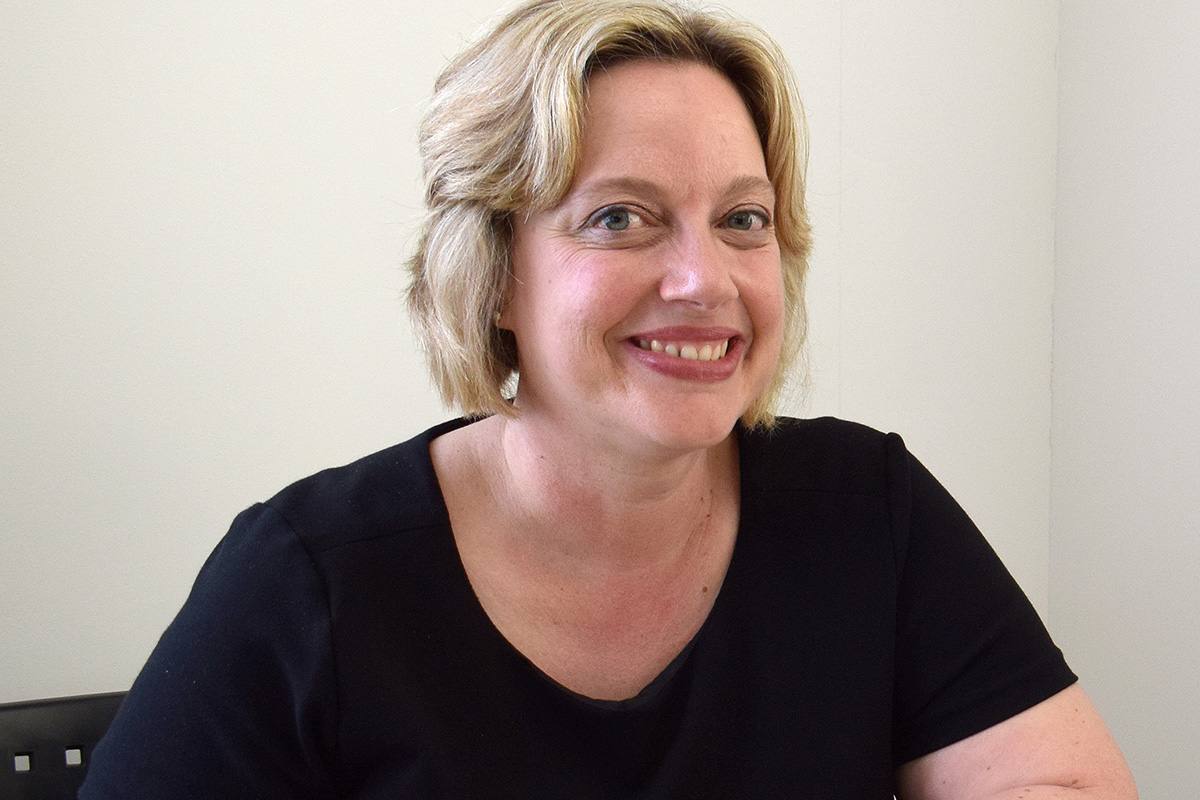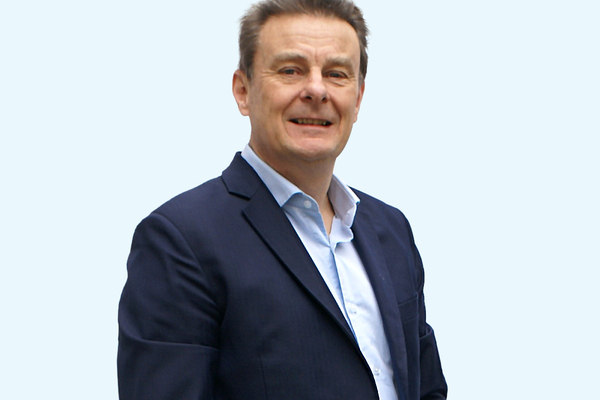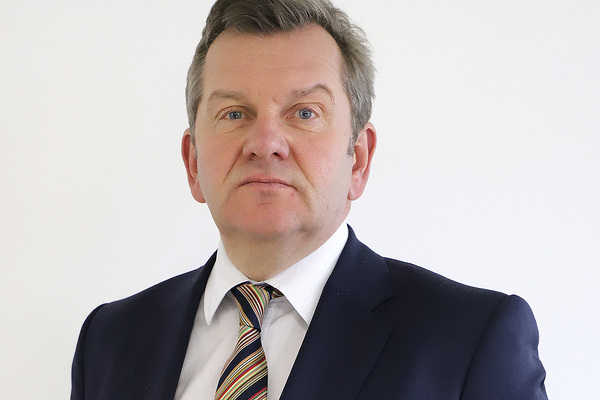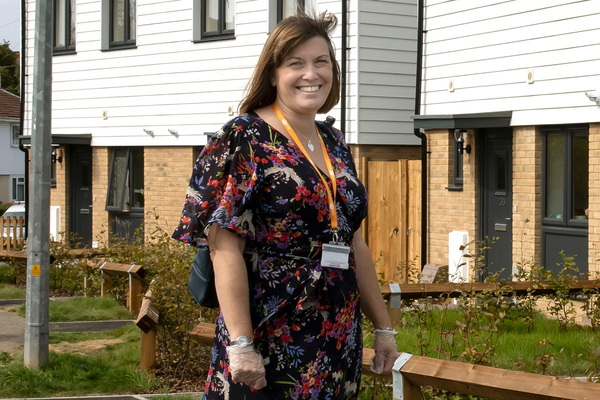15 minutes with… Ruth Cooke, chief executive of GreenSquareAccord
Ruth Cooke is chief executive of the newly merged GreenSquareAccord. She speaks to Lucie Heath about mergers, net zero and moving out of lockdown
On 1 April, GreenSquare and Accord completed their merger. What was the thinking behind it?
Some thinking was fairly typical of organisations of a certain size. Given the way the external environment is, there is something about creating a larger organisation. So you can create both an organisation that can do more, but also an organisation that is a bit more resilient. Both believe in the importance of a local, community-based service. Then when you look at the activity each was undertaking and our geography, both were expanding in a way that meant we were adjoining and we saw an opportunity to do more without tripping over each other.
The ambition is to build 1,000 homes per year. How long will it take you to get to that point?
We’ve said by 2025/26 we want to be nudging up against that target. We know that our delivery is going to come from a mixture of Section 106, partnerships with developers and our own land-led schemes. All of those, to one degree or another, are market dependent. Putting that infrastructure in place takes a while, so it’s reasonable to take a few years.
What are the organisation’s plans around decarbonisation?
We’re working on a decarbonisation strategy and we can do that better and quicker as a larger organisation. We’ve got a large geography and a mix of stock types. A lot of our properties are relatively new. Decarbonisation is not such a massive challenge for those, but we have got some properties that it will be difficult to get beyond EPC C.
What do you think the biggest challenges are that you will face when it comes to decarbonisation?
I think there will be some stock, I think it will be a small percentage of our stock just given the age of each organisation, where it wouldn’t be cost effective to bring it up to net zero and then we have to decide what is it we want to do with those properties - do we want to re-provide them or do we think we’re better off disposing and reinvesting into more energy efficient properties? But there’s a whole range of issues you have to consider when you look at that.
I think probably the other challenge that we need to think about in terms of decarbonisation is if we bring properties up to that standard, what does it mean about the way in which we construct those properties, but also the conversations we have with customers? We’ve all seen some brilliant properties built to a very high standard, you know achieving Passivhaus, and actually it requires a change in behaviour if you live in one of those properties.I think we need to look at zero carbon in that fullest sense.
The new organisation has over 100 care and support schemes. What are the main challenges now of running a care business during the pandemic?
Exactly as you would expect I think. I suppose it’s a tribute to the colleagues we’ve got who work in those care and support schemes. They’ve done an absolutely fantastic job over COVID. They’ve coped with all sorts of challenges from supporting customers, from dealing with the inevitable instances of outbreaks in care settings or dealing with the challenges that presents on staffing levels...I think there’s also been just how do you make sure, because in a care setting COVID is not really going to go away, so how do we make sure that we deliver a service that we can continue to be proud of in a post-COVID world?
More generally how do you think COVID has changed how the business operates?
I think it’s certainly given us a reminder of just how agile and flexible we can be when we need to. The fact that each of our legacy organisations was pretty much able to switch to flexible working overnight is a fantastic achievement and probably not something any of us thought we’d have to do. As an organisation that’s delivered a merger, and we’ve delivered it almost entirely online...and as an organisation that’s got a really wide geography and a range of services, we’ve learned some really valuable lessons about flexible working, about agile working, about how you can be a very connected organisation even without being in the same room as other people.
What do you think are the biggest challenges of decarbonisation?
There will be a small percentage of our stock where it won’t be cost-effective to bring it up to net zero and we have to decide what we want to do with those. Do we want to re-provide them or are we better off disposing and reinvesting into more energy-efficient properties? The other challenge is if we bring properties up to that standard, what does it mean about the way in which we construct those homes? We’ve seen properties built to a very high standard – like Passivhaus – and it requires a change in behaviour if you live in one of those properties.
What are the main challenges of running a care business during the pandemic?
It’s a tribute to the colleagues who work in those schemes. They’ve coped with all sorts of challenges, supporting customers, dealing with outbreaks or dealing with the challenges that presents on staffing levels. In a care setting, COVID is not really going to go away, so how do we make sure that we deliver a service that we can continue to be proud of in a post-COVID world?
More generally how do you think COVID-19 has changed how the business operates?
The fact that each of our legacy organisations was pretty much able to switch to flexible working overnight is a fantastic achievement. We’ve learned some valuable lessons about flexible and agile working, and about how you can be connected even without being in the same room as others.
Are you planning for a full return to the office?
I suspect we’ll end up like many organisations in that for some, homeworking for a chunk of the time is appropriate. For some roles, it’s more appropriate to be out in the neighbourhood. For others, it’s important to be in the office to collaborate. A mixture of all of those is probably the optimum solution.
What do you wish the sector was talking more about right now?
We’re good at talking about all sorts of things. There’s a point where you have to stop talking and start delivering. We’ve probably reached that stage with decarbonisation.
‘15 minutes with…’ series
In our ‘15 minutes with…’ series, we have a quick chat with the biggest names in the sector about the most important issues.
Previously, we have featured:
Mushtaq Khan, chief executive of the Housing Diversity Network
Barbara Brownlee, chief executive of Soho Housing
Eddie Hughes, former minister for rough sleeping and housing
Geeta Nanda, chief executive of Metropolitan Thames Valley Housing
David Bogle, chair of Homes for Cathy
Laurence Carr, money coach at Yorkshire Housing
Dinah Roake, chair of the London Housing Panel
Sheron Carter, chief executive at Hexagon
Helen Spencer, executive director of growth at Great Places
Julie Wittich, executive director of assets and sustainability at Accent
Ian Mulheirn, executive director of policy at the Tony Blair Institute for Global Change
Kevin Ruth, chief executive of Together Housing
Piers Williamson, chief executive of The Housing Finance Corporation
Seyi Obakin, chief executive at Centrepoint
Fayann Simpson, senior independent director at L&Q
Mark Perry, chief executive at Vivid
Rose Bean, executive director of assets and sustainability at Abri
Ruth Cooke, chief executive at GreenSquareAccord
Ben Denton, managing director at L&G Affordable Homes
Simon Dudley, chair at Ebbsfleet Development Corporation
Emma Palmer, chief executive at Eastlight Community Homes
Tracy Harrison, chief executive at Northern Housing Consortium
Sign up for our asset management newsletter
Already have an account? Click here to manage your newsletters














